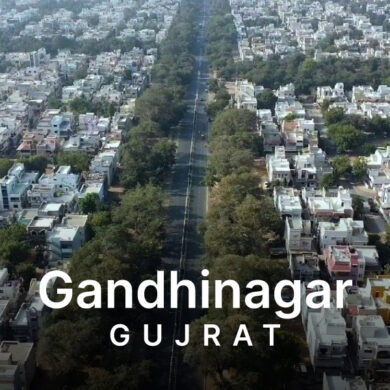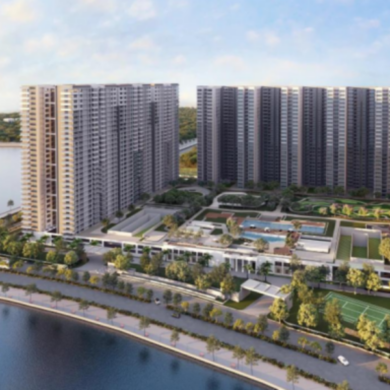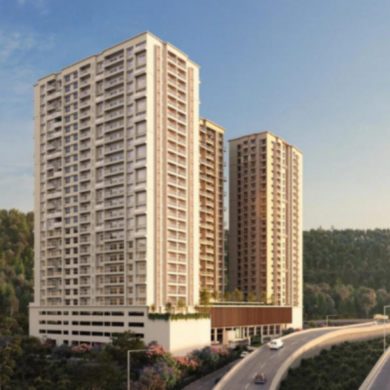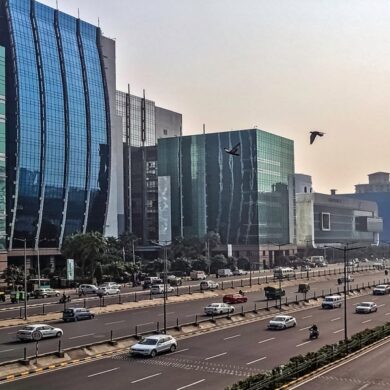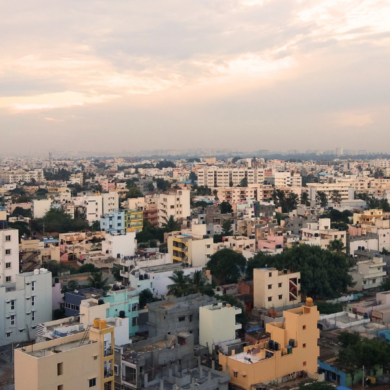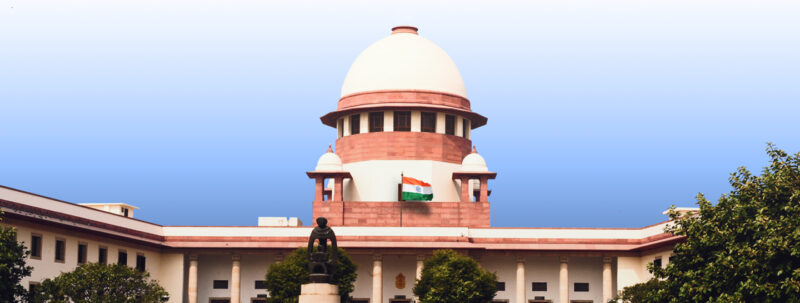
The Honourable Supreme Court judgement on society maintenance charges, along with RERA guidelines, ensures transparency, fairness, and accountability – empowering homebuyers and residents to address disputes and safeguard their rights effectively.
Understanding the financial implications of living in a residential society is essential for homeowners and tenants alike. The Hon’ble Supreme Court of India has brought much-needed clarity to this essential aspect, ensuring fair practices across the board.
Its landmark rulings on society maintenance charges have empowered homeowners and residents, by enhancing transparency and accountability. By addressing long-standing ambiguities, these judgements are protecting the interests of those investing or living in apartment communities.
Table of Contents
What Are Apartment Maintenance Charges?
Apartment maintenance charges or society maintenance charges refer to the fees collected by the housing society or property management to cover the upkeep, repairs, and day-to-day operations of common areas and facilities. It usually includes the following:
- Security Services: Salaries of security personnel and expenses incurred for surveillance systems
- Cleaning and Sanitation: Upkeep of common areas like corridors, lobbies, staircases, and parking spaces
- Electricity for Common Areas: Power consumption for lifts, lighting, and shared facilities
- Water Supply: Costs for borewell maintenance, water purification, or tanker supply
- Repairs and Maintenance: Regular servicing of elevators, plumbing, and other equipment
- Waste Management: Garbage collection and disposal charges
- Amenities: Upkeep of swimming pools, gyms, clubhouses, multifunctional halls, children’s play areas, and more
- Reserve Funds: Contributions to a corpus fund for unforeseen repairs or emergencies
Issues Leading to Legal Disputes Over Society Maintenance Charges
Residents and apartment associations often find themselves at odds over the proper amount to be paid, the services covered, and the way these society maintenance charges are levied. Understanding these issues can empower residents and association members to navigate the complex landscape of maintenance charges.
Key Issues Leading to Legal Disputes over Maintenance Charges
- Lack of Clear Communication: Poor communication between apartment owners and the maintenance committee can lead to disputes over charges
- Unclear or Excessive Charges: Vague or unjustified maintenance charges can result in resident dissatisfaction and conflicts
- Irregular or Improper Billing: Inconsistent billing practices, late penalties, or errors often escalate into disputes
- Disagreements Over Service Quality: Poorly maintained facilities or unmet service expectations spark resident complaints
- Differing Expectations Between Buyers and Developers: Mismatches between promised and delivered services lead to legal conflicts
- Disputes Over Ownership and Liability: Confusion over ownership or maintenance responsibilities causes disagreements
- Delayed Handover of Maintenance Responsibility: Delays in transitioning maintenance responsibilities from developers to residents can create disputesRead More: What is RERA ACT 2016 – Real Estate Regulatory Authority & RERA Rules
Hon’ble Supreme Court’s Judgment: Key Highlights
A series of SC rulings has addressed key issues such as fair allocation of charges and legal obligations for both developers and residents in managing maintenance fees.
Background of Cases: Context and Parties Involved
A couple of landmark cases formed the basis of the SC judgment on apartment maintenance charges. Each case involved different parties but shared a common issue – disputes regarding the payment and management of maintenance charges in residential societies.
- Rasila S Mehta vs. Custodian, Nariman Bhavan, Mumbai (2011)
This case dealt with the responsibility of paying maintenance charges for properties attached under the Special Court (Trial of Offences Relating to Transactions in Securities) Act, 1992. The Custodian was held responsible for paying maintenance and repair charges for the attached properties. The Court recognised that while the notified parties were the owners, they were liable to pay these charges to maintain the value of the properties.The case also addressed the exemption of interest and penalties on arrears during the ongoing legal proceedings. This ruling is a significant part of the Supreme Court judgement on society maintenance charges, clarifying the liability of owners and custodians in relation to maintenance obligations.
- Income Tax Officer, Mumbai vs. Venkatesh Premises Co-Op. Sty. Ltd. (2018)
This case clarified that maintenance charges, non-occupancy charges, transfer fees, and common amenity fund charges collected by cooperative societies are not taxable under the doctrine of mutuality. If these funds are used for the mutual benefit of the members, they are exempt from tax. The Court reinforced that such funds are not considered taxable income, because they contribute to the common good and upkeep of the society.
- The Managing Director M/S Padmini Infrastructure Developers (I) Ltd. vs. The General Secretary, Royal Garden Residents Welfare Association (2021)
This case addressed a dispute regarding the developer’s liability to pay maintenance charges for unsold flats. The Residents Welfare Association claimed that the developer was responsible for maintenance charges on unsold units, but the Court rejected their claim due to the lack of detailed calculations and the time-barred nature of the dispute. This ruling is a key aspect of the Supreme Court judgement on apartment maintenance charges, setting a precedent on how maintenance fees should be handled in such circumstances.
- Utpal Trehan vs. DLF Home Developers Ltd. (2022)
This case involved a dispute over maintenance charges when the developer demanded payments from an allottee before possession of the flat. The Supreme Court ruled that the developer was not entitled to collect maintenance charges, once the maintenance responsibility was transferred to a separate association – as specified in the agreement.
Major Rulings
- Equal Responsibility for All Residents Regarding Certain Common Expenses: A major ruling in the Supreme Court judgement on apartment maintenance charges was the clarification that all residents are equally responsible for certain common expenses. This includes maintenance of shared spaces and services, ensuring that no resident is exempt from contributing towards the upkeep of the property.
- Guidelines for Proportional Charges Based on Apartment Size or Usage: The Court provided clear guidelines on how maintenance charges should be distributed. It stipulated that maintenance fees should be proportional to the size of the apartment or the extent of its use, promoting fairness in the way these charges are calculated.
- Developers’ Obligations to Manage Charges Until Handing Over to the RWA: Another important Supreme Court judgement on apartment maintenance charges was the responsibility of developers to manage maintenance charges, until control is formally handed over to the RWA. This ensures that residents do not face substandard services during the transition period, and that maintenance fees are collected and utilised appropriately.Read More: RERA Approved Projects: Importance, Benefits, Approval Criteria
Emphasis on Fairness, Transparency, and Accountability
Every Supreme Court judgement on apartment maintenance charges emphasised the need for fairness and transparency in the management of maintenance charges. It highlighted that these fees should be clearly communicated, itemised, and used exclusively for the benefit of the residents. The Court’s rulings ensure accountability from both developers and RWAs, providing a framework where residents can challenge unfair practices and safeguard their interests.
Implications of the Judgment
- For Residents: The judgment offers residents protection against excessive or unclear fees. It ensures transparency and accountability, empowering residents to challenge unfair charges and hold developers and RWAs responsible for proper billing and service quality.
- For Developers and RWAs: The judgment clarifies developers’ responsibilities, especially regarding unsold flats and the transition to the RWA. Developers must manage maintenance until the handover, ensuring a smooth process. For RWAs, it reinforces the need for transparent management of maintenance funds and fair fee distribution.
- Impact on New Buyers: The judgment assures fair and transparent maintenance charges for new buyers, based on apartment size or usage. It ensures that they will not face hidden fees or unfair charges, offering more confidence in the billing process and the handover of maintenance responsibilities.
How to Ensure Compliance with the Hon’ble Supreme Court’s Guidelines
Compliance with the SC guidelines on maintenance charges is essential for fostering transparency, accountability, and fairness in housing societies. Following these measures can help ensure adherence to RERA rules for maintenance charges – protecting the interests of homeowners:
- Transparency in Cost Disclosure: Developers must provide a detailed breakdown of maintenance charges, to prevent hidden or arbitrary fees
- Separate Maintenance Accounts: Maintenance and corpus funds must be held in separate accounts certified by a Chartered Accountant
- Proportional Charges: Maintenance fees should be based on apartment size or usage, for fairness among residents
- Timely Formation of the RWA: Developers must hand over maintenance management to the RWA within the specified timeframe
- Audit and Accountability: Regular audits ensure proper fund usage, with annual reports shared with residents or the RWA
- Advance Notice of Charges: Homeowners must be informed of the structure and frequency of maintenance charges in advance
- Raising Disputes through RERA Complaint Forums: Residents can file complaints with the RERA authority, to address maintenance charge grievances
- GST Compliance: Maintenance charges above ₹7500 per month are subject to 18% GST, requiring proper tax filings
- No Income Generation for Developers: Developers cannot use maintenance funds for any other purposes
Challenges in Implementing the Hon’ble Supreme Court’s Guidelines
The Supreme Court judgement on society maintenance charges aims to ensure fairness and transparency, but implementing these guidelines poses certain challenges, such as:
- Irregular Billing Practices: Poorly itemised bills, unclear payment cycles, and unjustified penalties can lead to confusion and disputes
- Delayed Handover to RWAs: Developers frequently delay transferring maintenance responsibilities, creating prolonged reliance on them and dissatisfaction among residents
- Service Quality Disputes: Residents may face subpar services despite paying charges – including issues with cleanliness, repairs, and security
- Unclear Proportional Charges: Implementing fees based on apartment size or usage requires clear methodologies, which may be lacking
- Lack of Financial Transparency: Non-compliance with requirements like separate bank accounts and audited reports erodes trust and accountability
- Legal and GST Complexities: Navigating RERA complaint forums and GST compliance for charges over ₹7500 per month remains challenging for RWAs and residents
- Lack of Awareness: Residents often remain unaware of Supreme Court judgement on society maintenance charges or RERA rules for maintenance charges, leading to unchecked compliance gaps. Developers and RWAs may lack clarity on their obligations, causing partial adherence to guidelines.
Addressing These Challenges
To ensure compliance with the Supreme Court judgement on society maintenance charges, stakeholders must:
- Educate residents and RWAs on their rights under RERA rules for maintenance charges
- Provide itemised bills, timely audits, and transparent fund management
- Ensure developers transfer responsibilities to RWAs within stipulated timelines
- Simplify access to legal recourse through RERA complaint forum
Legal Recourse for Residents
Residents facing disputes or non-compliance of Supreme Court judgement on society maintenance charges have many legal avenues to protect their rights and ensure justice. These options provide a framework to address grievances effectively and uphold transparency in residential societies.
- RERA Complaint Forum: Residents can file complaints with the RERA authority, for issues like arbitrary charges or non-compliance with agreements
- Consumer Protection Act: Complaints for unfair practices or service deficiencies can be addressed through consumer courts
- Civil Litigation: Residents can file civil suits for non-transparency or failure to deliver promised services
- Approaching the Cooperative Societies Registrar: The Registrar addresses disputes such as fund mismanagement and billing issues
- High Courts or Supreme Court: Broader legal disputes can be escalated to higher courts for interpretation and resolution
- Mediation and Arbitration: ADR mechanisms offer amicable solutions to disputes, without lengthy litigation
Conclusion
The Supreme Court judgement on society maintenance charges and the framework provided by RERA rules for maintenance charges have brought much-needed transparency and accountability to residential societies. While challenges in implementation persist, these guidelines empower residents to safeguard their rights and ensure fair practices.
By understanding legal recourses and staying informed, homeowners and tenants can address disputes effectively – fostering harmonious and well-maintained communities where responsibilities are shared and fairness prevails.
FAQs
1. What is the Supreme Court decision on maintenance charges in an apartment?
The Supreme Court decision on maintenance charges in an apartment included transparency, fairness, and proportional allocation of maintenance charges based on apartment size or usage, ensuring accountability from developers and RWAs.
2. What are UP RERA rules for maintenance charges?
UP RERA rules for maintenance charges mandate clear documentation of these costs in sale agreements, separate accounts for funds, and fair billing practices until the RWA takes over.
3. How to calculate maintenance charges for apartments?
You can calculate maintenance charges for apartments proportionally based on apartment size or shared equally, depending on the service and society's agreed upon formula.
4. Is a developer liable to pay maintenance for unsold flats?
Yes, a developer is liable to pay maintenance for unsold flats, until the RWA assumes responsibility.
5. Can I refuse to pay society maintenance charges?
No, you cannot refuse to pay society maintenance charges, as all residents of the society are obligated to pay their share of maintenance charges for the upkeep of common areas and facilities.
6. What did the Supreme Court rule about maintenance charges?
The Supreme Court judgement on society maintenance charges emphasised proportional charges, clear disclosure, and developers’ responsibility to manage these costs until the handover to the RWA.
7. Does the Supreme Court ruling apply to all housing societies in India?
Yes, the Supreme Court ruling applies to all housing societies in India – ensuring fairness and compliance with legal standards.
8. How are maintenance charges calculated after the Supreme Court ruling?
Maintenance charges are calculated after the Supreme Court ruling proportionally based on apartment size or usage, with developers responsible for unsold units until the RWA takes over.
9. What rights do residents have regarding maintenance charges?
The rights residents have regarding maintenance charges include transparent billing, fair allocation of charges, access to expenditure audits, and raising disputes with the RERA authority.
10. What should buyers check regarding maintenance charges before purchasing an apartment?
Buyers should check the following regarding maintenance charges before purchasing an apartment: detailed maintenance costs, billing frequency, and the developer's obligations before possession.

